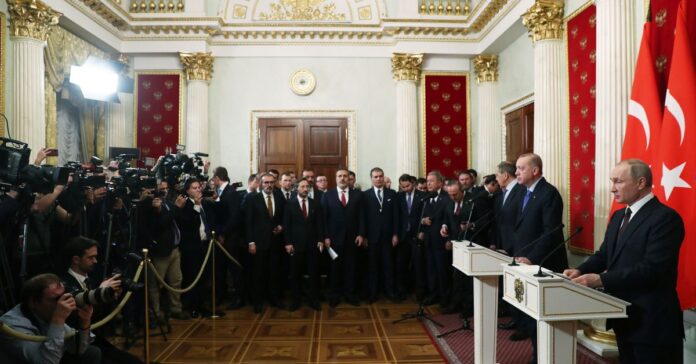Author: Galip Dalay
Organization/Publisher: Centre for Applied Turkey Studies (CATS)/SWP (German Institute for International and Security Affairs)
Date/Place: August 4, 2021/Germany
Type of Literature: Research Paper
Word Count: 15329
Link:https://www.swp-berlin.org/en/publication/turkish-russian-relations-in-light-of-recent-conflicts
Keywords: Russia, Turkey, East Europe, Central Asia, MENA, Revisionist Power, Arab Revolution
Brief:
Turkey and Russia have had diverse positions on the regional status quo. At the regional level, after the Arab revolutions, Turkey has shaped as a revisionist power. It has reinforced the overthrow of authoritarian regimes and the instituting of a new regional order, developing closer relations with the pro-change forces in the region. Even though in recent years, Turkey has adopted a much more cautious stance on the continuing waves of protests in the Middle East, this does not change the overall picture. In contrast, Russia has wrought as a status quo power in the region, showing clear preferences for regional authoritarian strong men such as Sisi and Assad. It was suspicious towards the Arab uprisings and supported the incumbent regimes. Such a divergence of preferences as regards the regional status quo has created a strategic incompatibility between the two powers’ regional visions. Turkish-Russian cooperation in the Middle East and beyond has been partially facilitated by the US withdrawal from or the downsizing of its regional commitments and Europe’s absence from the MENA region. However, developments at the broader international level, a new administration in the US, rising tensions between Ukraine and Russia, and the partial reinvigoration of European and UN diplomacy on the Libyan crisis indicate that Turkey will face more constraints and higher costs for its hitherto geopolitical balancing act between the West and Russia.
By: Maryam Khan, CIGA Research Associate




